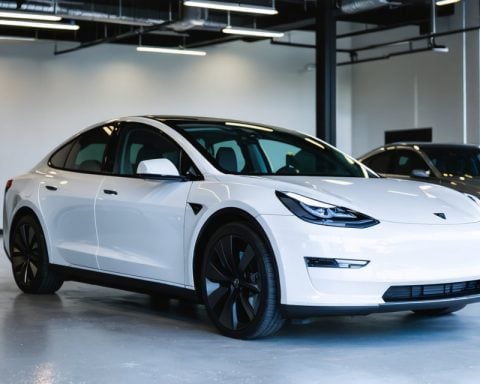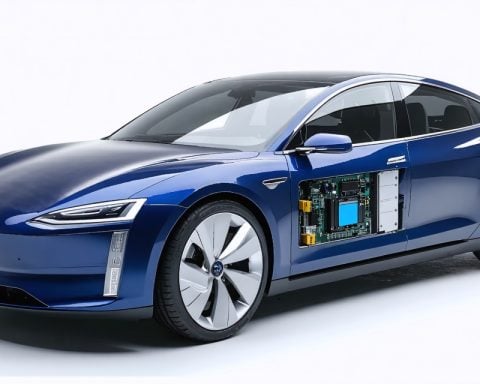The electric vehicle (EV) industry is on the brink of a transformation with recent advancements in battery technology that promise to redefine the future of transportation. Researchers at several leading tech firms and universities have unveiled a groundbreaking solid-state battery that could charge an electric vehicle in under 10 minutes.
Current lithium-ion batteries used in EVs have long been criticized for their limited range and lengthy charging times. However, this new solid-state technology, using a lithium metal anode, promises to be smaller, more efficient, and safer than its predecessors. This innovation could extend vehicle range while significantly reducing charging time, addressing two of the primary consumer concerns about electric vehicles.
This advancement might also scale up EV adoption globally, accelerating the move away from fossil fuels. As EVs become more accessible due to better batteries, environmental benefits will increase, marking a crucial step towards sustainable transportation systems. Large automakers have already begun investing heavily in order to integrate these cutting-edge batteries into their next generation of vehicles.
Moreover, the economic implications are vast. This could spark massive infrastructure changes, prompting countries to bolster their EV charging networks, creating jobs in renewables, and promoting cleaner energy sources. The upcoming decade could witness a rapid evolution in transportation, with the potential of these batteries leading the charge toward an electrified future. As researchers continue refining the technology, the world watches eagerly, anticipating the dawn of a new era in mobility.
Solid-State Battery Breakthrough: A Game Changer for the Electric Vehicle Industry
The electric vehicle (EV) industry is poised for a revolution, thanks to recent breakthroughs in solid-state battery technology. This innovation, primarily involving the use of a lithium metal anode, marks a significant leap forward from traditional lithium-ion batteries, promising efficiency and safety enhancements that could reshape the future of transportation.
Features and Innovations
Solid-state batteries are set to redefine performance standards within the EV sector. Notably, these batteries hold the potential to fully charge a vehicle in under 10 minutes—a stark improvement over the current charging times. This advancement not only addresses consumer concerns regarding convenience but also tackles the issue of range anxiety, enabling longer trips on a single charge.
Additionally, the reduced size and increased safety profile of solid-state batteries offer new possibilities in vehicle design, allowing for sleeker and more energy-efficient electric cars.
Pros and Cons
Pros:
– Rapid Charging: The ability to charge in under 10 minutes revolutionizes consumer expectations.
– Extended Range: Greater operating range due to efficient energy storage.
– Enhanced Safety: Reduced risk of overheating and battery failure.
– Smaller Battery Size: Allows for more vehicle design flexibility.
Cons:
– Cost: Currently, the technology may be more expensive to produce.
– Scalability: Mass production and widespread adoption are still in developmental stages.
Market Analysis and Trends
As large automakers invest heavily in this burgeoning technology, market dynamics are shifting rapidly. Companies are racing to integrate solid-state batteries into the next generation of electric vehicles, spurring a competitive landscape focused on innovation and performance. The demand for cleaner energy solutions is prompting manufacturers and policymakers alike to accelerate the transition to sustainable transportation systems.
Energy infrastructure is also expected to evolve, with countries enhancing their EV charging networks to accommodate the influx of electric vehicles, paving the way for new job opportunities in the renewables sector.
Sustainability and Environmental Impact
The shift towards solid-state batteries is not only an economic boon but also a significant stride towards sustainability. By reducing reliance on fossil fuels, EVs equipped with these advanced batteries can substantially lower greenhouse gas emissions and pollution, contributing to a healthier global environment.
Predictions for the Future
Over the next decade, the transportation landscape is likely to experience dramatic changes driven by advancements in battery technology. Experts predict that as researchers continue to refine solid-state batteries, their commercialization will lead to more efficient, affordable, and accessible electric vehicles. This transition promises to accelerate global EV adoption and move society closer to a fully electrified future.
For more information and trends in electric vehicle technology and sustainable transportation solutions, visit Tesla and General Motors for insights from leading industry players.













